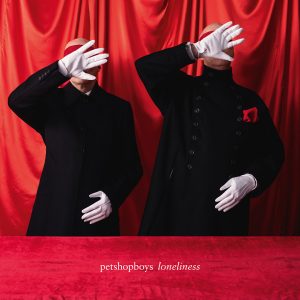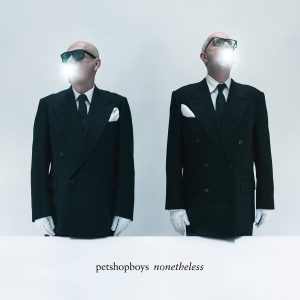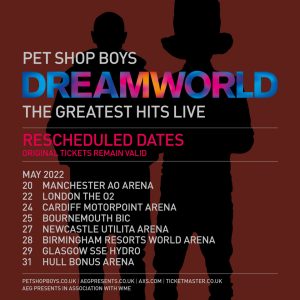The Pet Shop Boys don’t need slick moves on the dance floor to set it alight.
The joke isn’t translating. Or crossing the oceans. Or, let’s be honest, just plain isn’t funny.As the Pet Shop Boys release Electric – an album highly geared to the dance floor, possibly their most accessible piece of dance pop in years – I ask vocalist and lyricist Neil Tennant if he has some patented moves when he hits the floor.After a pause long enough to see civilisations rise and fall, his answer is short and in the negative. You could call him perplexed now, though maybe annoyed might be truer, when I foolishly persist and ask if it’s too late, then, for him to develop one. There’s an even longer pause, then: ”I don’t think I’ve ever thought about it before.”We are not amused.Advertisement Right, then. Moving along to the appeal of dance music for someone who isn’t much of a dancer, Electric (produced by Tennant; his long-term musical partner, Chris Lowe; and electro-dance maven, DJ and occasional Madonna associate Stuart Price) carries a sense of euphoria, even set against the usual dry, if not deadpan, Tennant vocals. It taps directly into the thrill of clubbing any time in the past 40 years, which, it should be noted, is almost as long as the Pet Shop Boys have been hit makers.”I haven’t been clubbing for many years and there is a song specifically about this on the album, looking back to that sense of warmth and community,” Tennant says, objecting to the (imagined) suggestion that you can’t make dance music if you’re not dancing. ”You can listen to Swan Lake without feeling the need to pirouette around the room. Was Tchaikovsky a ballet dancer?”True, but as one of a pair that has written music for a film (the silent classic Battleship Potemkin) and a musical (Closer to Heaven), Tennant knows that to make the music in the first place, Tchaikovsky was immersed in the theatre and the music and context of ballet. Like the Pet Shop Boys, he didn’t need to be doing it to understand it; he was smart enough to get it.What has always been enjoyable about the Pet Shop Boys is a sense of intelligence that is part of the scene in which the band’s output sits – yet they remain separate from it and observe it, bringing in elements that rarely fly with the essential ephemeral nature of dance music, such as literature, art, film, philosophy and, latterly, middle-aged life.”That’s what we’ve tried to do over the years, bringing together pure instances of physical pleasure with something more philosophical or political,” Tennant says. ”Because we don’t just like dance music, you know: this is probably only the second time we’ve made a dance record all the way through.”All the way through our so-called career, we’ve always thought there should be no barriers in the songs you make; you can sing about any subject,” he says.”Being in sync with what’s going on – well, our instinct is to swim against the tide.”That’s the great thing about popular culture, it can always surprise you. What you’re aiming for is some kind of originality as well. When you hear [new song] Love Is a Bourgeois Construct, I don’t think we are the only group that could have written that but there are not many that could have done it.”That standing outside the flow, of commenting truthfully, means that, bizarre as it might seem, there is something quite appropriate about the Pet Shop Boys covering Bruce Springsteen’s The Last to Die on this album.”I think there is common ground between the Pet Shop Boys and Bruce Springsteen because we both tell stories about the world as we see it,” Tennant says. ”Chris’ sister suggested we do this and when we played it in the studio, we could imagine doing it with the big guitar riff changed to a vocal riff, and the chords are so beautiful and it has drama. Every now and then, of course, Bruce Springsteen has made a record that we think sounds like the Pet Shop Boys; Streets of Philadelphia has got a drum machine, open chords and that stripped-down, almost electronic [feel], really, like his album Tunnel of Love.”Like the emotionally fraught Tunnel of Love, the Pet Shop Boys’ previous album, Elysium, was more subdued than this new album. Given most of the songs for Electric were written at the same time, it suggests a deliberate separation of introspective and euphoric material. ”We decided we wanted to make a mood piece, and the dance album almost happened as a side project. But it rapidly became a fully fledged album as we wrote more songs and approached Stuart Price,” Tennant says. ”They are, in their way, a sort of a pair, really: Elysium is a much more personal, intimate album that we play at home and Electric is going out, playing-in-the-car kind of record.”In sound, style and words, then, these two albums give you a sense of a group not so easily packaged as middle-aged men looking back or ageing hipsters trying to reclaim their youth.”We’ve never lost that childish sense of making something up, of playing for the sake of it and having fun. That’s really why we’re still together. It’s energising.”
Taken from: The Age Entertainment
Interviewer: Bernhard Zuel





